
Jost Van Dyke: The Jewel of the British Virgin Islands
Jost Van Dyke, a gem in the British Virgin Islands, is a must-visit for any traveler seeking a mix of relaxation and adventure. Known for its pristine beaches, this tiny island offers a peaceful retreat from the hustle and bustle of everyday life. The island's white sand beaches, such as White Bay and Great Harbour, are famous for their crystal-clear waters and vibrant marine life. Snorkeling and diving enthusiasts will find an underwater paradise teeming with colorful coral reefs and exotic fish. Beyond its natural beauty, Jost Van Dyke is rich in culture and history. The island was named after a Dutch pirate and has a storied past that visitors can explore through local museums and landmarks. The native residents are warm and welcoming, often sharing stories of the island's heritage. Dining in Jost Van Dyke is an experience in itself, with numerous beachside bars and restaurants offering fresh seafood and traditional Caribbean dishes. No visit is complete without trying the famous Painkiller cocktail at the Soggy Dollar Bar. Whether you're sailing the azure waters, hiking to the island's highest points for panoramic views, or simply lounging on the beach with a good book, Jost Van Dyke offers something for everyone. The island's laid-back vibe and stunning scenery make it a perfect destination for couples, families, and solo travelers alike. Don't miss the chance to experience the magic of Jost Van Dyke, where every day feels like a dream come true.
Local tips in Jost Van Dyke
- Visit White Bay early in the morning to beat the crowds and enjoy the tranquility.
- Bring cash, as some smaller establishments may not accept credit cards.
- Rent a boat to explore the surrounding cays and hidden beaches.
- Try the local seafood dishes and the famous Painkiller cocktail at the Soggy Dollar Bar.
- Wear reef-safe sunscreen to protect the local marine life when snorkeling.
Jost Van Dyke: The Jewel of the British Virgin Islands
Jost Van Dyke, a gem in the British Virgin Islands, is a must-visit for any traveler seeking a mix of relaxation and adventure. Known for its pristine beaches, this tiny island offers a peaceful retreat from the hustle and bustle of everyday life. The island's white sand beaches, such as White Bay and Great Harbour, are famous for their crystal-clear waters and vibrant marine life. Snorkeling and diving enthusiasts will find an underwater paradise teeming with colorful coral reefs and exotic fish. Beyond its natural beauty, Jost Van Dyke is rich in culture and history. The island was named after a Dutch pirate and has a storied past that visitors can explore through local museums and landmarks. The native residents are warm and welcoming, often sharing stories of the island's heritage. Dining in Jost Van Dyke is an experience in itself, with numerous beachside bars and restaurants offering fresh seafood and traditional Caribbean dishes. No visit is complete without trying the famous Painkiller cocktail at the Soggy Dollar Bar. Whether you're sailing the azure waters, hiking to the island's highest points for panoramic views, or simply lounging on the beach with a good book, Jost Van Dyke offers something for everyone. The island's laid-back vibe and stunning scenery make it a perfect destination for couples, families, and solo travelers alike. Don't miss the chance to experience the magic of Jost Van Dyke, where every day feels like a dream come true.
When is the best time to go to Jost Van Dyke?
Iconic landmarks you can’t miss
Soggy Dollar Bar
Experience the legendary Soggy Dollar Bar on Jost Van Dyke: home of the Painkiller cocktail and the ultimate Caribbean beach vibes.
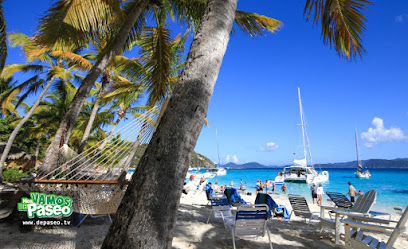
Cyril B. Romney Tortola Pier Park
Discover the charm of Cyril B. Romney Tortola Pier Park, a vibrant waterfront space in Road Town, offering stunning views, local shops, and delicious dining.
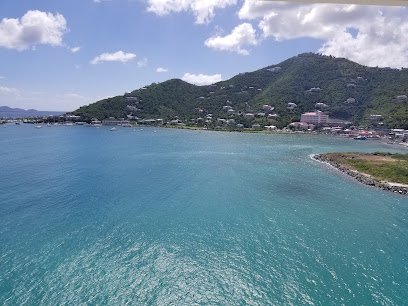
Annaberg Sugar Plantation
Discover the ruins of Annaberg Sugar Plantation on St. John, a historic landmark offering insights into the island's colonial past and the lives of enslaved people.
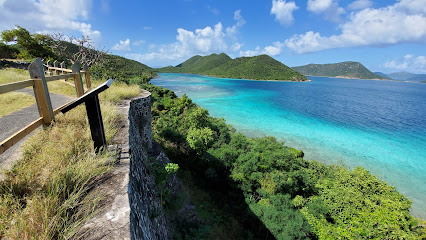
Foxy's, Jost Van Dyke, British Virgin Islands
Experience the vibrant culture and stunning views at Foxy's, Jost Van Dyke's iconic bar and social hub in the British Virgin Islands.
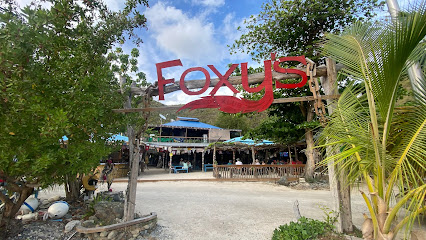
Cane Garden Bay
Discover Cane Garden Bay, Tortola: a perfect blend of white sand beaches, turquoise waters, and vibrant Caribbean culture.
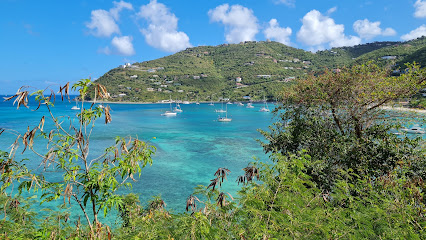
J.R. O'Neal Botanical Gardens
Discover a serene oasis in Road Town: Explore diverse flora, tranquil paths & vibrant displays at the J.R. O'Neal Botanical Gardens.
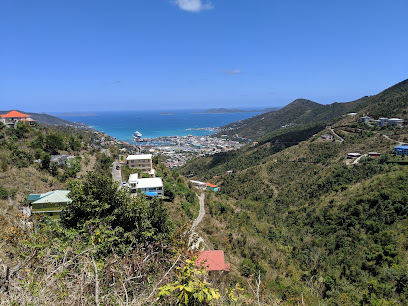
Corsairs Beach Bar & Restaurant
Experience the vibrant flavors of the Caribbean at Corsairs Beach Bar & Restaurant, a beachfront dining paradise in the British Virgin Islands.
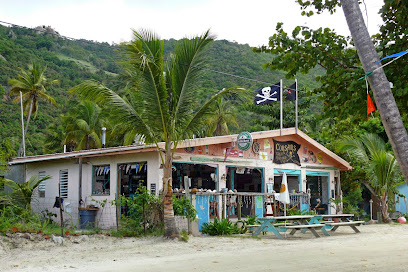
Foxy's Taboo
Discover Foxy's Taboo on Jost Van Dyke: a serene Caribbean escape with stunning views, delicious food, and laid-back island vibes.
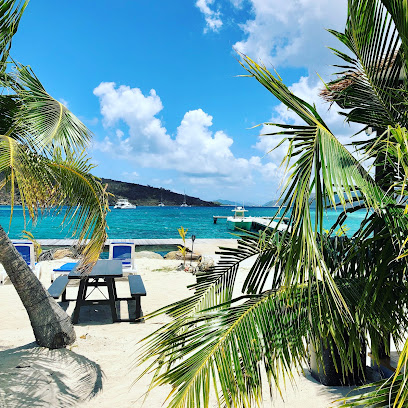
Gorda Peak National Park
Hike to breathtaking panoramic views at Virgin Gorda's highest point, a Caribbean dry forest teeming with unique flora and fauna.
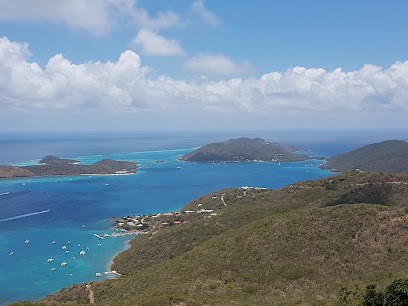
Callwood Rum Distillery
Discover the authentic flavors of the Caribbean at Tortola's historic Callwood Rum Distillery, where rum-making traditions come to life.
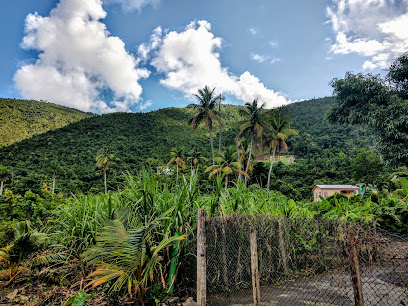
Bamboushay Restaurant & Lounge
Waterfront dining in Road Town offering Caribbean cuisine, live music, and a relaxing lounge atmosphere.
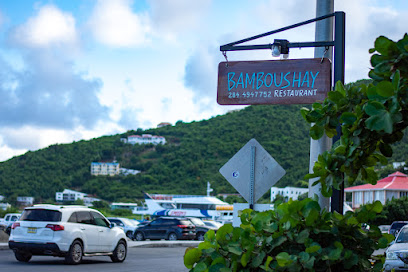
Hendo's Hideout
Experience laid-back island vibes, fresh seafood, and inventive cocktails at this beachfront destination on Jost Van Dyke's White Bay.
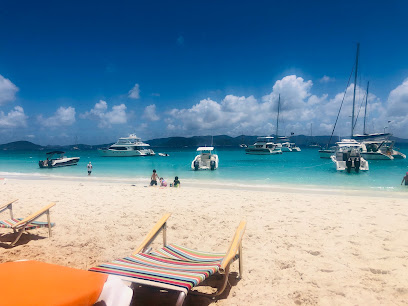
Tipsy Shark
Savor fresh seafood with stunning ocean views at Tipsy Shark in Belle Vue, British Virgin Islands. Open daily for a memorable dining experience.
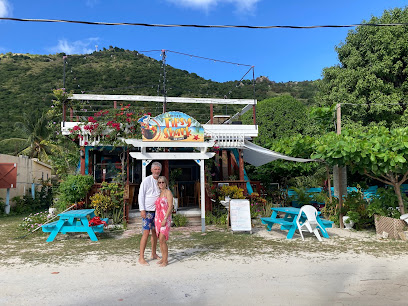
Alice's Restaurant
Experience authentic Italian cuisine with a Caribbean twist at Alice's Restaurant, offering stunning views and a relaxed vibe in White Bay, Jost Van Dyke.
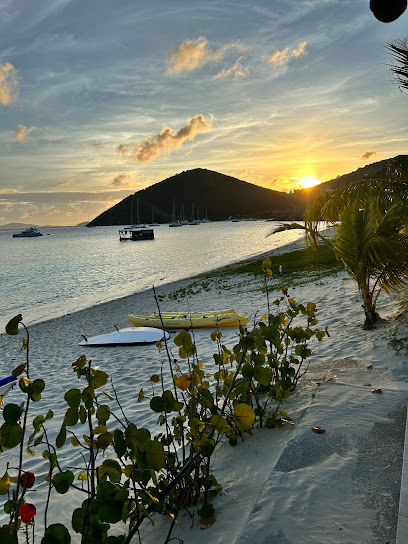
Jost Van Dyke Scuba
Discover pristine reefs and vibrant marine life with Jost Van Dyke Scuba, the only dive center on Jost Van Dyke in the British Virgin Islands.
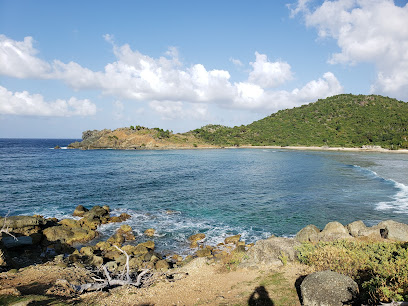
Unmissable attractions to see
Magens Bay Beach
Experience paradise at Magens Bay Beach, St. Thomas: voted one of the world's most beautiful beaches with calm waters and stunning scenery.
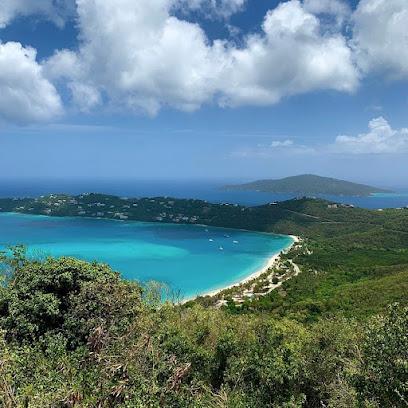
Coral World Ocean Park
Explore Caribbean marine life at Coral World Ocean Park: underwater observatory, sea encounters, and conservation efforts await!
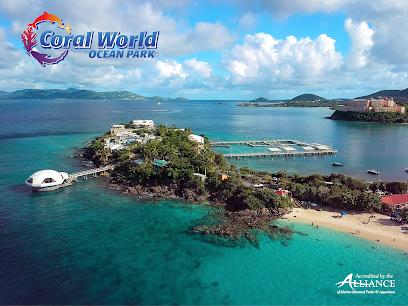
Mountain Top
Experience breathtaking views, duty-free shopping, and the world-famous Banana Daiquiri at St. Thomas's highest peak, Mountain Top.
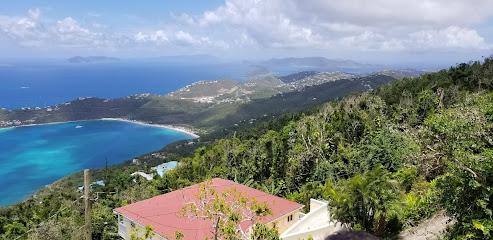
Virgin Islands National Park
Discover St. John's natural beauty and history: pristine beaches, lush trails, and colonial ruins await in this Caribbean national park.
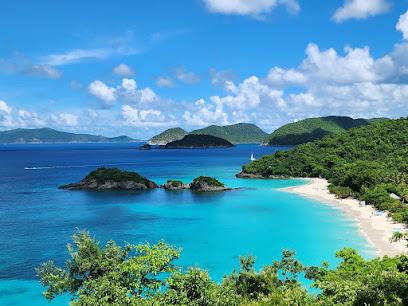
Parasail Virgin Islands
Experience breathtaking views of St. Thomas from 400ft in the air. Create lasting memories with a parasailing adventure at Sapphire Beach Marina!
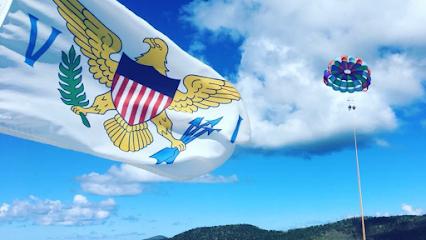
Coki Point Beach
Discover vibrant marine life and lively Caribbean vibes at Coki Point Beach, St. Thomas' snorkeling hotspot next to Coral World Ocean Park.
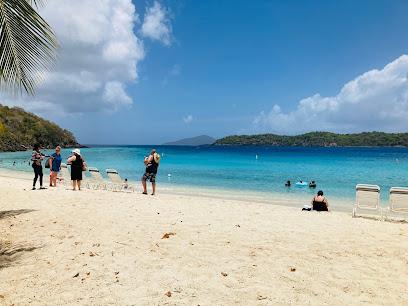
Charlotte Amalie Overlook
Experience breathtaking panoramic views of Charlotte Amalie and the Caribbean Sea from this must-visit scenic overlook in St. Thomas.
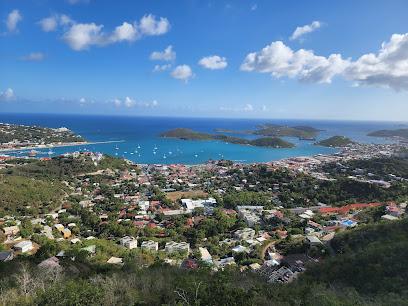
Soggy Dollar Bar
Experience the laid-back island vibes at Soggy Dollar Bar, the ultimate destination for beach lovers and cocktail enthusiasts in Jost Van Dyke.
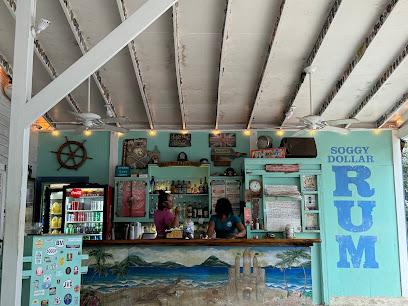
The Baths
Explore the geological wonders of The Baths in Virgin Gorda: swim, snorkel, and discover hidden grottoes amidst towering granite boulders.
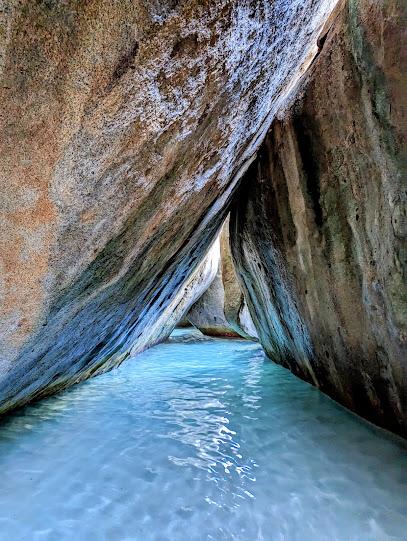
Drake's Seat
Experience St. Thomas's legendary beauty from Drake's Seat: panoramic views, rich history, and unforgettable scenery await!
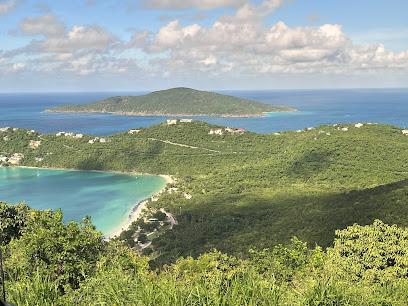
Bolongo Bay Beach Resort
Discover the ultimate tropical escape at Bolongo Bay Beach Resort, where sun, sea, and adventure meet on the stunning shores of St. Thomas.
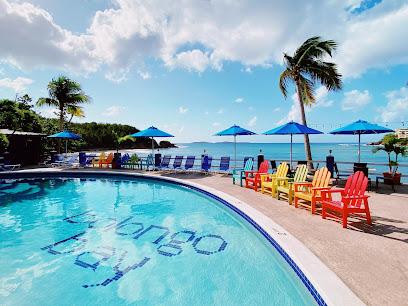
Lady Lynsey Catamaran
Experience St. Thomas in style with Lady Lynsey Catamaran: luxury sailing, snorkeling adventures, sunset cruises, and bespoke private excursions.

American Yacht Harbor
Experience the heart of St. Thomas's boating scene at American Yacht Harbor: premier marina services, dining, and access to Caribbean adventures.
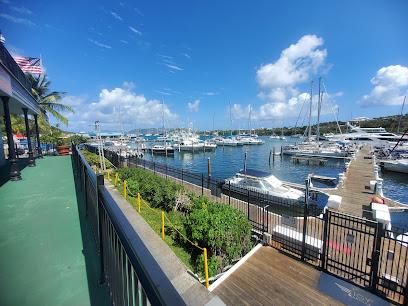
Lindquist Beach
Discover Lindquist Beach in St. Thomas: a serene tropical paradise with crystal-clear waters, soft white sands, and vibrant marine life.
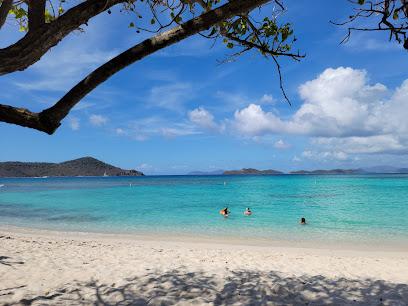
Annaberg Sugar Plantation
Step back in time at Annaberg Sugar Plantation, explore the ruins, and learn about St. John's colonial history and sugar production era.
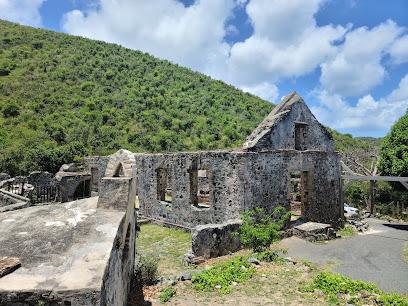
Essential places to dine
Soggy Dollar Bar
Experience Caribbean bliss at Soggy Dollar Bar in Jost Van Dyke - where relaxation meets vibrant culture with stunning ocean views.
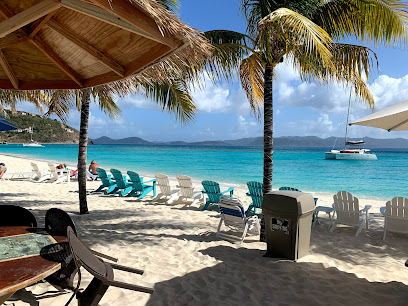
Peg Legs Restaurant
Discover Peg Legs Restaurant: A culinary delight offering fresh seafood and Caribbean flavors with stunning marina views in Nanny Cay.
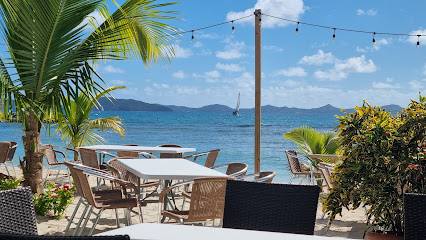
Myett's Restaurant & Hotel
Discover culinary delights at Myett's Restaurant & Hotel in Cane Garden Bay – where local flavors meet stunning ocean views.
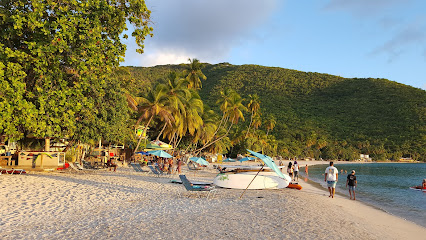
Corsairs Beach Bar & Restaurant
Discover delicious seafood and breathtaking ocean views at Corsairs Beach Bar & Restaurant in beautiful Belle Vue.
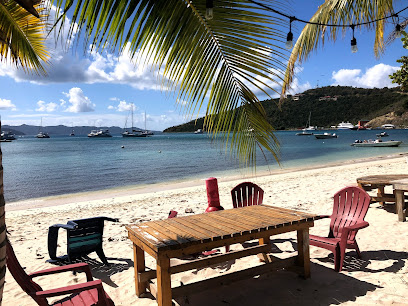
D'CoalPot BVI Restaurant Bar & Grill
Experience authentic Caribbean cuisine at D'CoalPot BVI Restaurant Bar & Grill in Tortola – where every meal is a celebration of flavor and culture.
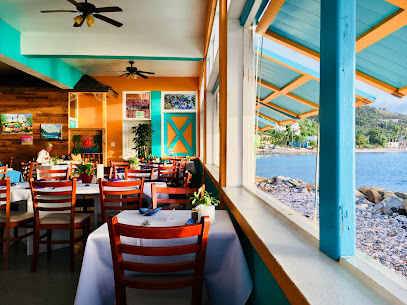
Foxy's Taboo
Experience exquisite flavors at Foxy's Taboo, a top-rated restaurant in Belle Vue offering fresh local cuisine and stunning island views.
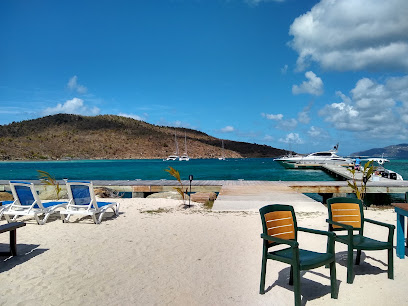
Bamboushay Restaurant & Lounge
Experience exquisite Caribbean dining at Bamboushay Restaurant & Lounge with stunning waterfront views in Road Town.
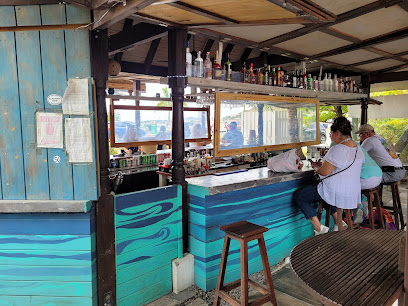
Tipsy Shark
Savor fresh seafood and vibrant cocktails at Tipsy Shark in Belle Vue, where every meal is a taste of island paradise.
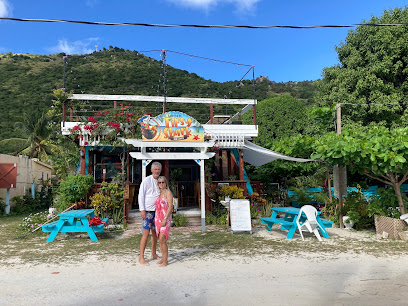
Alice's Restaurant
Experience authentic Caribbean flavors at Alice's Restaurant in Jost Van Dyke - where every meal feels like a vacation.
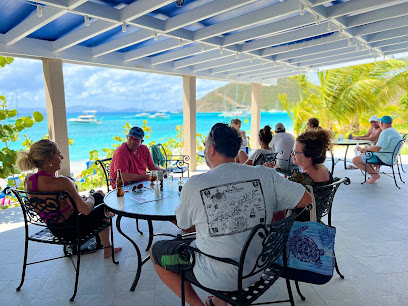
B-Line beach bar & restaurant
Discover B-Line Beach Bar & Restaurant on Little Jost Van Dyke for fresh grilled delights and breathtaking ocean views.
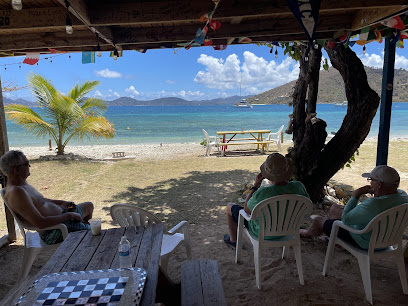
Gene's Bar & Grill
Discover Gene's Bar & Grill: A charming grill offering mouthwatering dishes and local flavors in Road Town, British Virgin Islands.
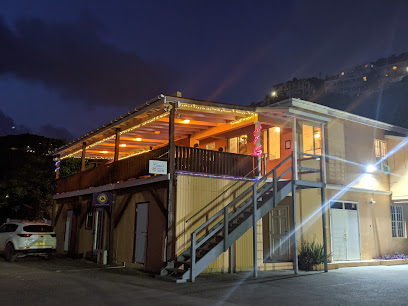
Sugar & Spice Snack Bar
Discover flavorful Caribbean cuisine at Sugar & Spice Snack Bar in Belle Vue – your gateway to authentic island dining experiences.
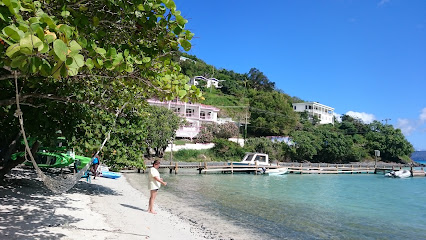
The Dove Restaurant
Experience authentic Caribbean cuisine with stunning views at The Dove Restaurant in Tortola's vibrant dining scene.
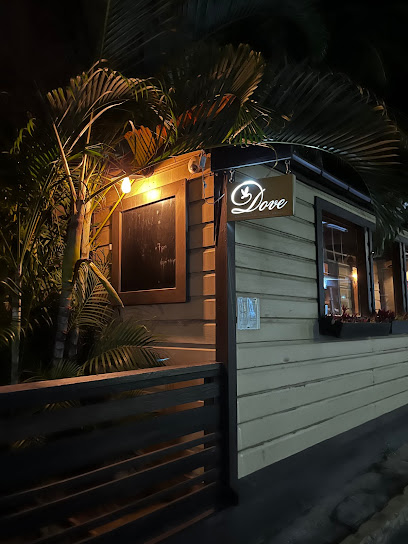
Sidney's Peace & Love
Experience the vibrant flavors and warm hospitality at Sidney's Peace & Love in the stunning British Virgin Islands.
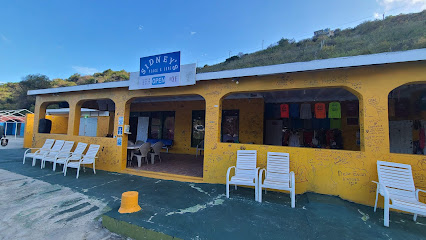
Harris' Place
Experience authentic Caribbean flavors at Harris' Place in Jost Van Dyke - where each dish reflects island culture.
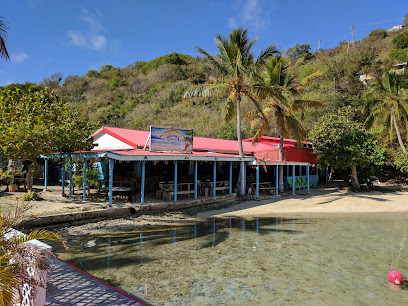
Markets, malls and hidden boutiques
Soggy Dollar Bar
Discover the laid-back vibe of Soggy Dollar Bar in Jost Van Dyke, where tropical drinks and stunning ocean views await every visitor.
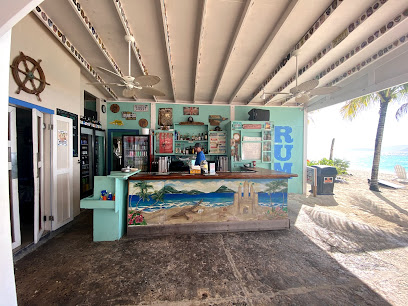
Island Department Store
Discover the Island Department Store in Road Town, your one-stop shop for local treasures, home essentials, and quality appliances in the British Virgin Islands.
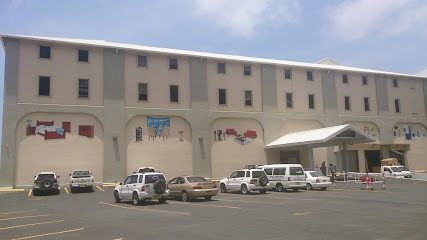
Crafts Alive Village
Explore Crafts Alive Village, a colorful souvenir shop in Road Town, showcasing local crafts, unique gifts, and breathtaking ocean views.
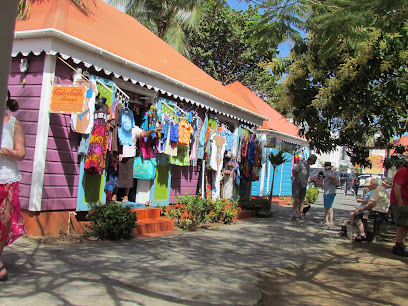
Varieties & Electronics
Explore Varieties & Electronics in Road Town for the best in Caribbean fashion and essential home appliances, all in one vibrant shopping destination.
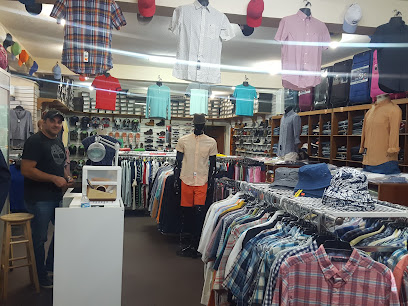
Rudy's Marketplace
Explore the unique offerings of Rudy's Marketplace, a vibrant destination in Belle Vue, British Virgin Islands, blending shopping, dining, and local culture.
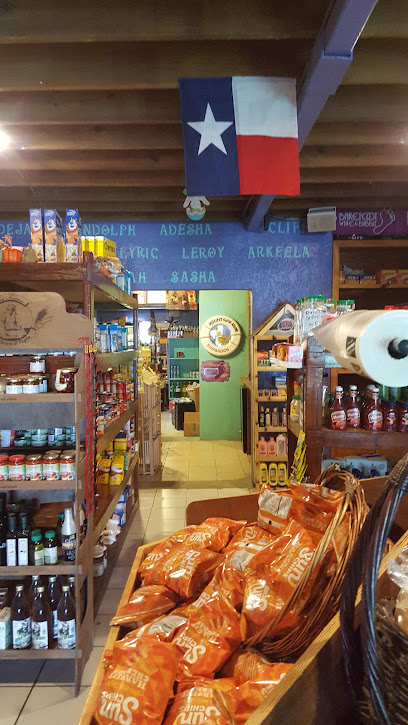
Nook
Discover literary treasures and local authors at Nook, the charming bookshop in Road Town, British Virgin Islands.
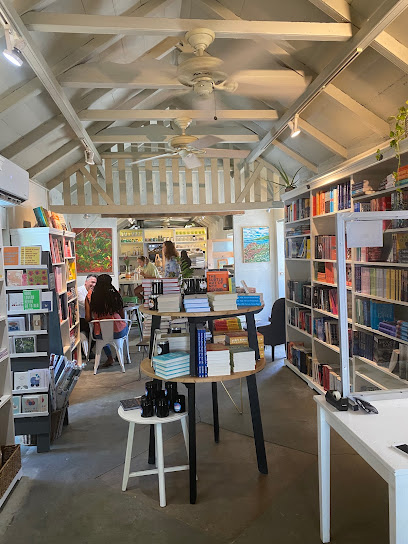
Grace To You International Soaps and More
Explore the beauty of organic cosmetics at Grace To You International Soaps and More in Sea Cows Bay, a true treasure of the British Virgin Islands.
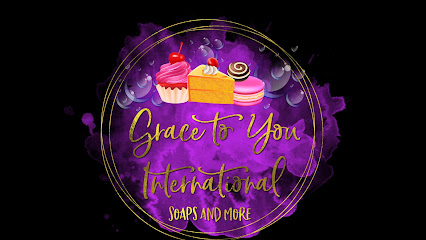
Nutmeg and Co
Discover unique local gifts and handcrafted treasures at Nutmeg and Co, the must-visit gift shop in Road Town, British Virgin Islands.
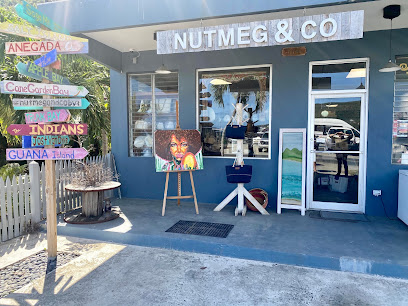
JVD Grocery
Explore the vibrant JVD Grocery in Great Harbour, Jost Van Dyke for local groceries and essentials during your Caribbean adventure.
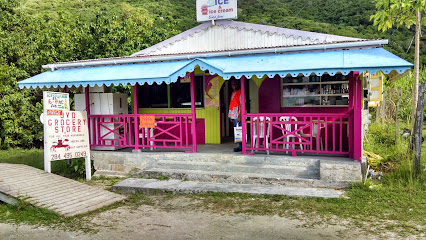
Thee Sport Shop
Discover quality sportswear at Thee Sport Shop in Tortola, British Virgin Islands—your ultimate destination for activewear and outdoor gear.
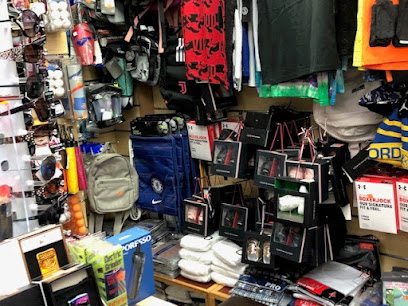
Serendipity Books & Toys
Discover the charm of Serendipity Books & Toys, Road Town's literary gem, offering a unique selection of books and toys that capture the spirit of the British Virgin Islands.
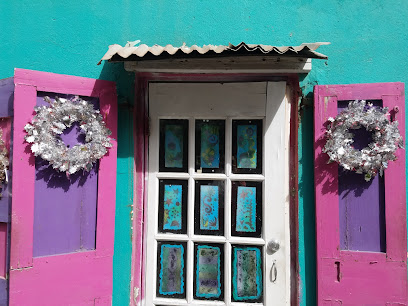
Just Kidding Children's Boutique
Discover the magic of childhood at Just Kidding Children's Boutique in Road Town, British Virgin Islands – a delightful stop for families and young explorers.
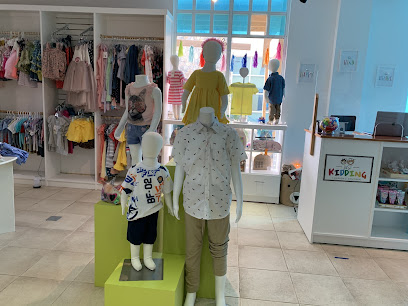
Arawak
Explore Arawak in Road Town for unique homewares that reflect the vibrant culture and artistry of the British Virgin Islands.

Boujee Treats by Pink Bliss BVI
Experience the ultimate ice cream indulgence at Boujee Treats by Pink Bliss BVI, where gourmet flavors meet tropical bliss.
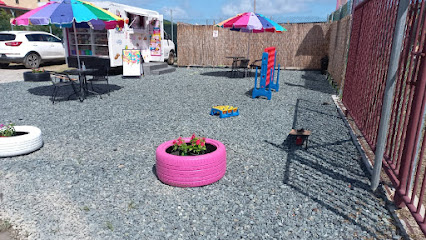
V.I. Books & Things
Explore V.I. Books & Things, a cozy bookshop in the British Virgin Islands, offering a wide selection of literature and a warm, inviting atmosphere.

Essential bars & hidden hideouts
Soggy Dollar Bar
Experience the laid-back charm of Soggy Dollar Bar on Jost Van Dyke, where refreshing cocktails and stunning ocean views await.
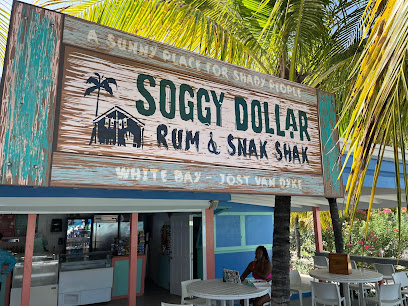
Foxy's, Jost Van Dyke, British Virgin Islands
Experience the vibrant spirit of the Caribbean at Foxy's in Jost Van Dyke, where stunning views and delicious drinks meet lively music and local culture.
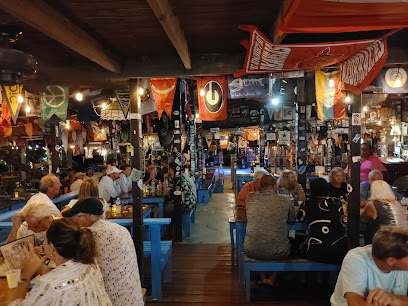
Corsairs Beach Bar & Restaurant
Experience culinary delights and stunning ocean views at Corsairs Beach Bar & Restaurant in the British Virgin Islands.
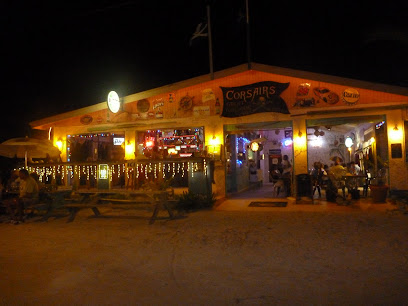
Foxy's Taboo
Experience the flavors of the Caribbean at Foxy's Taboo, where vibrant cuisine meets a lively atmosphere in the British Virgin Islands.
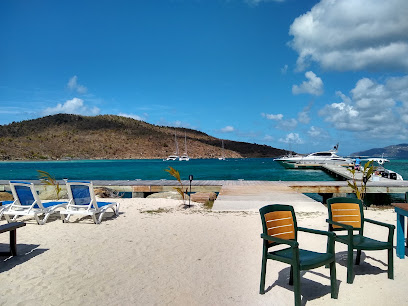
Hendo's Hideout
Experience the vibrant atmosphere and tropical flavors at Hendo's Hideout in Belle Vue, British Virgin Islands - the perfect bar for relaxation and socializing.
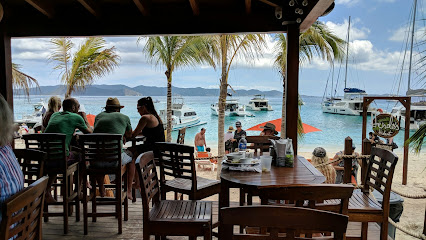
Tipsy Shark
Discover the Flavors of the Sea at Tipsy Shark, a Premier Seafood Restaurant in the Heart of Belle Vue, British Virgin Islands.
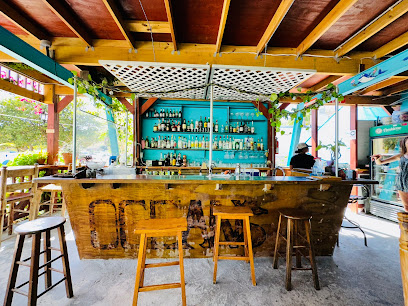
Alice's Restaurant
Experience the essence of Caribbean dining at Alice's Restaurant in Jost Van Dyke, a perfect blend of stunning views, fresh flavors, and vibrant atmosphere.
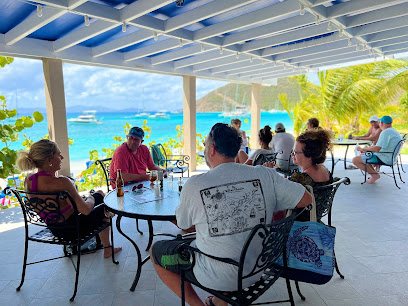
B-Line beach bar & restaurant
Discover the vibrant dining experience at B-Line Beach Bar & Restaurant, where Caribbean flavors meet stunning ocean views in the British Virgin Islands.
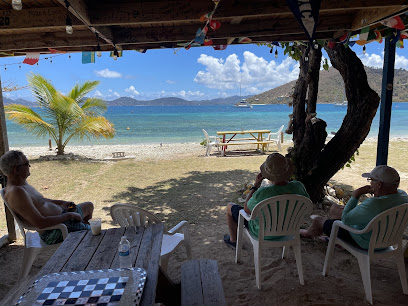
Sugar & Spice Snack Bar
Experience the vibrant taste of the Caribbean at Sugar & Spice Snack Bar in Belle Vue, where grilled delights meet stunning ocean views.
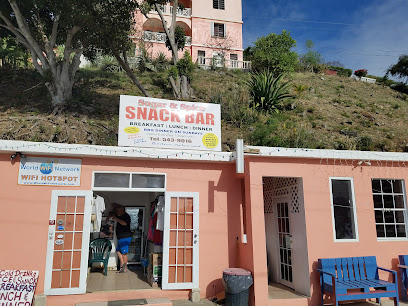
Sidney's Peace & Love
Discover the taste of the Caribbean at Sidney's Peace & Love, a dining haven in the British Virgin Islands offering exquisite local cuisine.
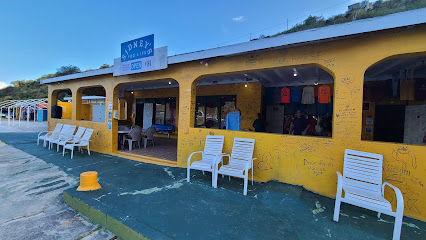
Coco Loco
Discover the vibrant atmosphere of Coco Loco, a beachfront bar in the British Virgin Islands, perfect for cocktails and sunset views.
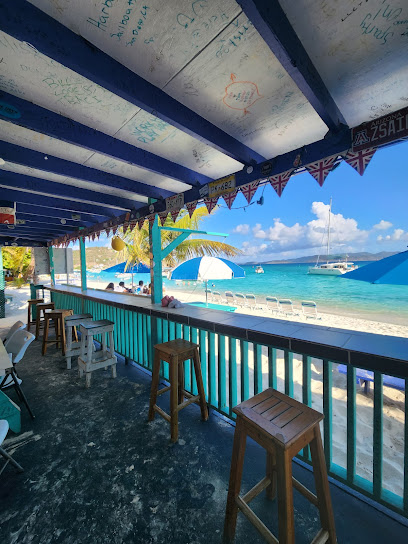
Ali Baba's
Discover the vibrant flavors and stunning views at Ali Baba's, a top grill restaurant in the British Virgin Islands.
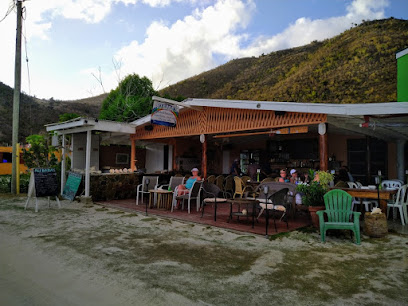
Ivan’s Stress Free Bar, Villas & Beach Bungalows
Discover the charm of Ivan's Stress Free Bar, Villas & Beach Bungalows - a paradise of relaxation and delicious grills in the British Virgin Islands.

One Love Bar and Grill
Experience the vibrant flavors of the Caribbean at One Love Bar and Grill in Belle Vue, British Virgin Islands.
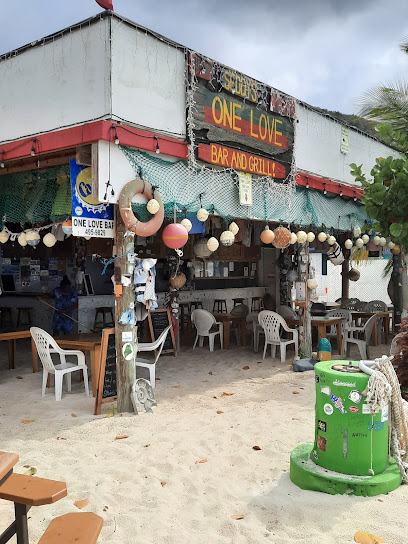
Local Phrases
-
- HelloHello
[heh-loh] - GoodbyeGoodbye
[goo-bye] - YesYes
[yes] - NoNo
[no] - Please/You're welcomePlease/You're welcome
[plee-z/yoo-ah wel-kum] - Thank youThank you
[thank yoo] - Excuse me/SorryExcuse me/Sorry
[ek-skewz mee/sor-ee] - How are you?How are you?
[hao ahr yoo] - Fine. And you?Fine. And you?
[fain. aend yoo] - Do you speak English?Do you speak English?
[doo yoo speek Ing-lish] - I don't understandI don't understand
[ah dont und-er-stand]
- HelloHello
-
- I'd like to see the menu, pleaseI'd like to see the menu, please
[ahd laik too see deh men-yoo, pleez] - I don't eat meatI don't eat meat
[ah dont eet meet] - Cheers!Cheers!
[cheers] - I would like to pay, pleaseI would like to pay, please
[ah wood laik too pay, pleez]
- I'd like to see the menu, pleaseI'd like to see the menu, please
-
- Help!Help!
[help] - Go away!Go away!
[goh a-way] - Call the Police!Call the Police!
[kawl the po-lease] - Call a doctor!Call a doctor!
[kawl a dok-ter] - I'm lostI'm lost
[ahm lost] - I'm illI'm ill
[ahm il]
- Help!Help!
-
- I'd like to buy...I'd like to buy...
[ahd laik too bahy] - I'm just lookingI'm just looking
[ahm jahst look-ing] - How much is it?How much is it?
[hao much iz it] - That's too expensiveThat's too expensive
[thats too ek-spens-iv] - Can you lower the price?Can you lower the price?
[kan yoo loh-er the prahys]
- I'd like to buy...I'd like to buy...
-
- What time is it?What time is it?
[wat taim iz it] - It's one o'clockIt's one o'clock
[its wun o-klok] - Half past (10)Half past (10)
[haf past (10)] - MorningMorning
[mor-ning] - AfternoonAfternoon
[af-ter-noon] - EveningEvening
[eev-ning] - YesterdayYesterday
[yess-ter-day] - TodayToday
[too-day] - TomorrowTomorrow
[toh-mor-row] - 11
[wun] - 22
[too] - 33
[tree] - 44
[for] - 55
[fahyv] - 66
[siks] - 77
[sev-en] - 88
[eyt] - 99
[nain] - 1010
[ten]
- What time is it?What time is it?
-
- Where's a/the...?Where's a/the...?
[warez a/the] - What's the address?What's the address?
[wats the ad-dres] - Can you show me (on the map)?Can you show me (on the map)?
[kan yoo show mee (on the map)] - When's the next (bus)?When's the next (bus)?
[whenz the nekst (bus)] - A ticket (to ....)A ticket (to ....)
[ah tik-et (to)]
- Where's a/the...?Where's a/the...?
History of Jost Van Dyke
-
In the 17th and early 18th centuries, Jost Van Dyke was a haven for pirates. The island is named after the Dutch pirate Joost van Dyk, who used the island as a hideout and a base for his piratical activities. The island’s hidden coves and bays provided perfect spots for ambushes and refuge from pursuing naval ships.
-
Long before European settlers arrived, the island was inhabited by the indigenous Arawak and Carib peoples. They left behind archaeological evidence that includes pottery shards and ancient tools. These early inhabitants thrived on the island’s rich marine life and fertile soils.
-
The British began to establish control over the Virgin Islands in the 17th century, and Jost Van Dyke became part of the British Virgin Islands. Sugar plantations were established, although the island’s rugged terrain limited large-scale agriculture. The remnants of these plantations can still be found scattered across the island.
-
The Great Hurricane of 1867 was a catastrophic event that struck the British Virgin Islands, including Jost Van Dyke. The hurricane caused widespread destruction, flattening houses and uprooting vegetation. It took years for the island to recover from the devastation.
-
After the abolition of slavery in 1834, Jost Van Dyke saw the establishment of a free, self-sufficient community. The island’s inhabitants turned to fishing, farming, and boat-building as their primary means of livelihood. The culture of self-reliance and community cooperation that developed during this period is still evident today.
-
Jost Van Dyke is home to the famous Soggy Dollar Bar, where the iconic cocktail known as the Painkiller was invented in the 1970s. The drink, a mix of rum, pineapple juice, orange juice, and coconut cream, has become synonymous with the island’s laid-back, tropical vibe.
-
In the latter half of the 20th century, Jost Van Dyke began to attract tourists drawn by its pristine beaches, crystal-clear waters, and vibrant culture. The island’s small population and limited development have helped preserve its natural beauty, making it a popular destination for those seeking an unspoiled Caribbean experience.
Jost Van Dyke Essentials
-
Jost Van Dyke is accessible primarily by boat. The nearest international airport is Terrance B. Lettsome International Airport (EIS) on Tortola. From Tortola, you can take a ferry or a private boat to Jost Van Dyke. Ferries operate regularly from West End and Road Town on Tortola, with the journey taking about 20-30 minutes. Alternatively, you can charter a private boat or use water taxi services for a more flexible schedule.
-
Jost Van Dyke is a small island, and much of it can be explored on foot. For longer distances, taxis are available and can be arranged through your accommodation or local providers. Renting a car or scooter is not common on the island, but boat rentals are popular for exploring nearby cays and beaches. Hiking is another great way to see the island's natural beauty.
-
The official currency of the British Virgin Islands is the US Dollar (USD). Credit cards are accepted at most hotels, restaurants, and shops, but it is advisable to carry some cash for smaller establishments and tips. ATMs are available on the island, though they may be limited, so consider withdrawing sufficient cash before arriving.
-
Jost Van Dyke is generally a safe destination for tourists. However, it is always wise to take standard precautions. Avoid leaving valuables unattended on the beach and be cautious when walking alone at night. The island does not have specific high-crime areas targeting tourists, but it is always best to stay vigilant and aware of your surroundings.
-
In case of emergency, dial 999 for police, fire, or medical assistance. The island has a small clinic for minor health issues, but more serious medical emergencies may require transport to Tortola or St. Thomas. It is recommended to have travel insurance that covers medical emergencies and evacuation if necessary.
-
Fashion: Do wear casual and comfortable clothing suitable for the beach and outdoor activities. Avoid wearing overly revealing clothing in public areas. Religion: Do respect local customs and traditions, although the island is not particularly religious. Public Transport: Do be polite and courteous when using taxi services. There is no public bus system on the island. Greetings: Do greet people with a friendly 'Hello' or 'Good day.' Islanders are generally warm and welcoming. Eating & Drinking: Do try local delicacies such as fresh seafood and traditional dishes. Don't refuse hospitality, as it is considered impolite.
-
To experience Jost Van Dyke like a local, visit the island's popular bars and restaurants such as Foxy's and the Soggy Dollar Bar. Engage with locals, who are often willing to share stories about the island's history and culture. Don’t miss the chance to explore the beautiful beaches like White Bay and Great Harbour. For a unique experience, visit during one of the island's lively festivals, such as Foxy's Old Year's Night (New Year's Eve) party.
Trending Landmark in Jost Van Dyke
-
Soggy Dollar Bar
-
Cyril B. Romney Tortola Pier Park
-
Annaberg Sugar Plantation
-
Foxy's, Jost Van Dyke, British Virgin Islands
-
Cane Garden Bay
-
J.R. O'Neal Botanical Gardens
-
Corsairs Beach Bar & Restaurant
-
Foxy's Taboo
-
Gorda Peak National Park
-
Callwood Rum Distillery
-
Bamboushay Restaurant & Lounge
-
Hendo's Hideout
-
Tipsy Shark
-
Alice's Restaurant
-
Jost Van Dyke Scuba
Nearby Cities to Jost Van Dyke
-
Things To Do in West End
-
Things To Do in Tortola
-
Things To Do in Road Town
-
Things To Do in The Valley
-
Things To Do in Spanish Town
-
Things To Do in Virgin Gorda
-
Things To Do in Anegada
-
Things To Do in Culebra
-
Things To Do in Vieques
-
Things To Do in Fajardo
-
Things To Do in Luquillo
-
Things To Do in Carolina
-
Things To Do in Caguas
-
Things To Do in Bayamón
-
Things To Do in Guayama











